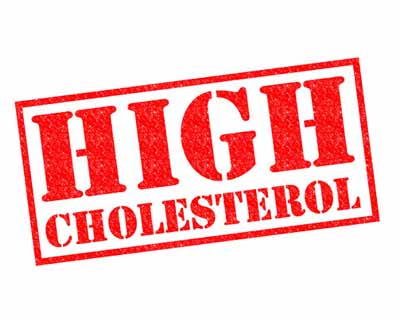- Home
- Editorial
- News
- Practice Guidelines
- Anesthesiology Guidelines
- Cancer Guidelines
- Cardiac Sciences Guidelines
- Critical Care Guidelines
- Dentistry Guidelines
- Dermatology Guidelines
- Diabetes and Endo Guidelines
- Diagnostics Guidelines
- ENT Guidelines
- Featured Practice Guidelines
- Gastroenterology Guidelines
- Geriatrics Guidelines
- Medicine Guidelines
- Nephrology Guidelines
- Neurosciences Guidelines
- Obs and Gynae Guidelines
- Ophthalmology Guidelines
- Orthopaedics Guidelines
- Paediatrics Guidelines
- Psychiatry Guidelines
- Pulmonology Guidelines
- Radiology Guidelines
- Surgery Guidelines
- Urology Guidelines
New gene identified causing inherited high cholesterol

London : Researchers have identified a gene which causes inherited high cholesterol in the blood that can lead to premature heart disease, including cardiac attacks, strokes, narrowing heart valves and sudden death.
Familial hypercholesterolemia is a genetic condition that is associated with very high levels of low-density lipoprotein cholesterol (LDL-C) or "bad" cholesterol.
The findings showed that cholesterol-containing lipoprotein is the cause of a quarter of all diagnoses of familial hypercholesterolemia.
"Individuals diagnosed with familial hypercholesterolemia have higher levels of lipoprotein(a) in their blood than individuals without the diagnosis," said lead researcher Anne Langsted from the University of Copenhagen's Herlev Hospital in Denmark.
High levels of lipoprotein(a) in the blood add to the already very high risk of suffering a heart attack for people with familial hypercholesterolemia.
Also, individuals with familial hypercholesterolemia and high levels of lipoprotein(a) are five times more likely to suffer a heart attack than individuals without these two conditions.
"All individuals with familial hypercholesterolemia should have their lipoprotein(a) concentrations measured in order to identify those with the highest concentrations and, therefore, also the highest risk of suffering a heart attack," added one of the researchers Borge G. Nordestgaard, clinical professor at the University of Copenhagen.
The study will help identify the individuals with the highest risk of suffering a heart attack and hopefully facilitate better preventive treatment for these extremely high risk individuals," the researchers said in the paper published in the journal The Lancet Diabetes and Endocrinology

Disclaimer: This site is primarily intended for healthcare professionals. Any content/information on this website does not replace the advice of medical and/or health professionals and should not be construed as medical/diagnostic advice/endorsement or prescription. Use of this site is subject to our terms of use, privacy policy, advertisement policy. © 2020 Minerva Medical Treatment Pvt Ltd